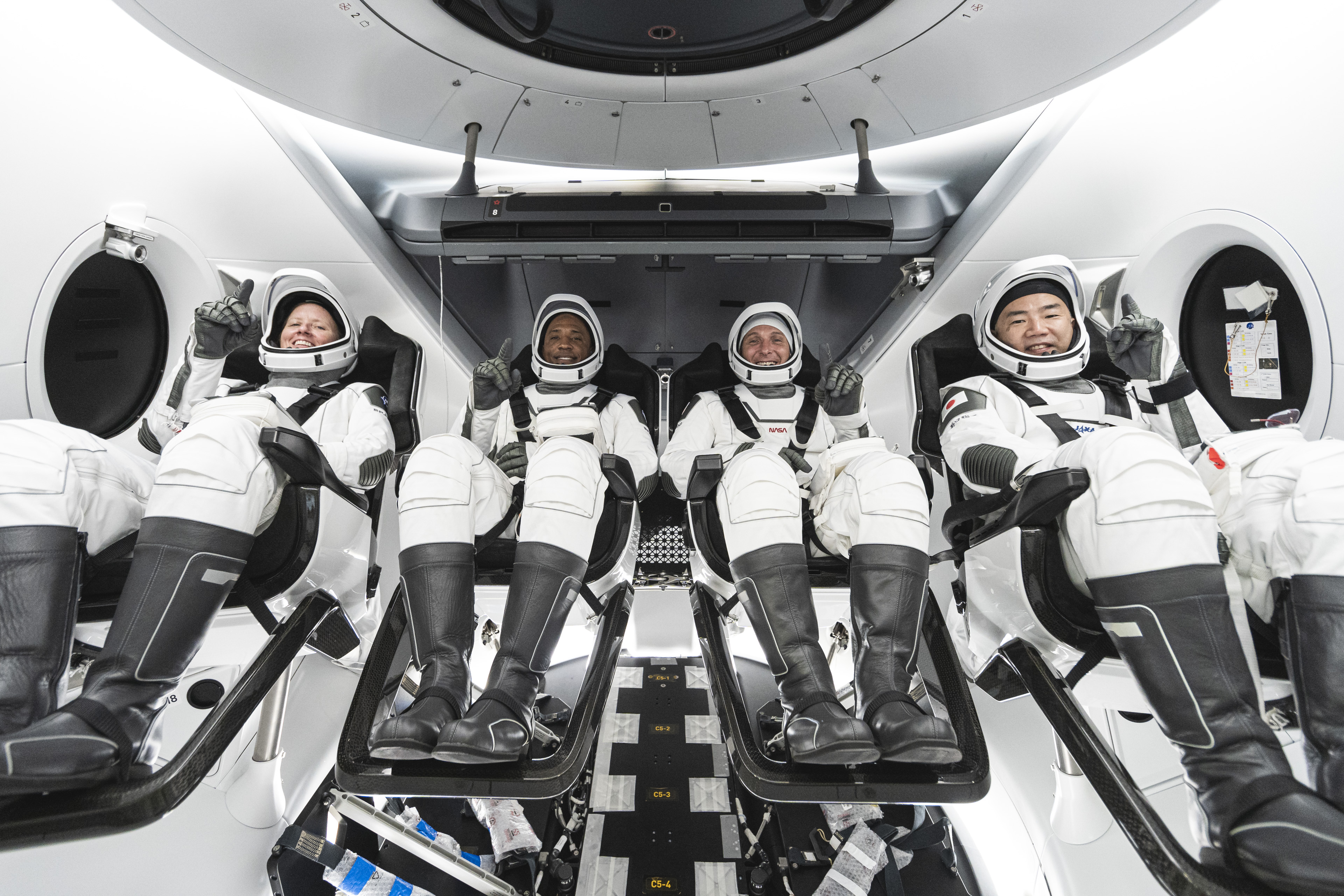SpaceX's next astronaut launch for NASA pushed back to Oct. 31

We'll have to wait a bit longer for SpaceX's first operational crewed mission to the International Space Station to get off the ground.
The target launch date for that flight, known as Crew-1, has been pushed from Oct. 23 to early Halloween morning (Oct. 31), NASA officials announced Monday (Sept. 28).
"The new target date will deconflict the Crew-1 launch and arrival from upcoming Soyuz launch and landing operations. This additional time is needed to ensure closure of all open work, both on the ground and aboard the station, ahead of the Crew-1 arrival," NASA officials wrote in a statement.
Related: SpaceX's historic Demo-2 crewed test flight in photos
That Soyuz launch, scheduled for Oct. 14, will send NASA astronaut Kate Rubins and cosmonauts Sergey Ryzhikov and Sergey Kud-Sverchkov to the orbiting lab. The Soyuz landing, also scheduled for next month, will bring NASA's Chris Cassidy and Russians Anatoli Ivanishin and Ivan Vagner back down to Earth. That trio has been living aboard the station since April.
Crew-1, meanwhile, will carry NASA astronauts Michael Hopkins, Shannon Walker and Victor Glover and Japanese spaceflyer Soichi Noguchi up to the orbiting lab aboard a SpaceX Crew Dragon capsule. If all goes according to the new plan, that capsule will launch atop a Falcon 9 rocket from Florida's Kennedy Space Center at 2:40 a.m. EDT (0640 GMT) on Oct. 31.
"SpaceX continues to make progress on preparations of the Crew Dragon spacecraft and Falcon 9 rocket, and the adjusted date allows the teams additional time for completing open work ahead of launch," NASA officials wrote in the statement.
Breaking space news, the latest updates on rocket launches, skywatching events and more!
The delay will also give space station managers more time to investigate the lab's small air leak, and possibly pinpoint its source, NASA officials added. The leak does not pose a threat to space station crewmembers, the agency has stressed.
Crew-1 will be the first of at least six operational missions SpaceX flies to the orbiting lab under a $2.6 billion NASA contract that the company signed in 2014. But it won't be SpaceX's first crewed flight. That distinction goes to Demo-2, a test mission that carried NASA astronauts Bob Behnken and Doug Hurley to the station for a two-month stay earlier this year. (The Crew-1 mission will last six months.)
"NASA is in the final stages of the data reviews needed ahead of certification following" Demo-2, agency officials wrote in the same statement. NASA and SpaceX will provide an update on that process during a news conference Tuesday morning (Sept. 29), the officials added.
SpaceX isn't the only company that holds a NASA crew-carrying deal. Boeing signed a similar contract in 2014, worth $4.2 billion. Boeing will fulfill that deal using a capsule called CST-100 Starliner, which is scheduled to fly an uncrewed test flight to the station sometime next year.
This will be Starliner's second crack at that mission. Starliner suffered a glitch that prevented meetup with the orbiting lab on its first attempt, which launched in December 2019.
Mike Wall is the author of "Out There" (Grand Central Publishing, 2018; illustrated by Karl Tate), a book about the search for alien life. Follow him on Twitter @michaeldwall. Follow us on Twitter @Spacedotcom or Facebook.

Michael Wall is a Senior Space Writer with Space.com and joined the team in 2010. He primarily covers exoplanets, spaceflight and military space, but has been known to dabble in the space art beat. His book about the search for alien life, "Out There," was published on Nov. 13, 2018. Before becoming a science writer, Michael worked as a herpetologist and wildlife biologist. He has a Ph.D. in evolutionary biology from the University of Sydney, Australia, a bachelor's degree from the University of Arizona, and a graduate certificate in science writing from the University of California, Santa Cruz. To find out what his latest project is, you can follow Michael on Twitter.
